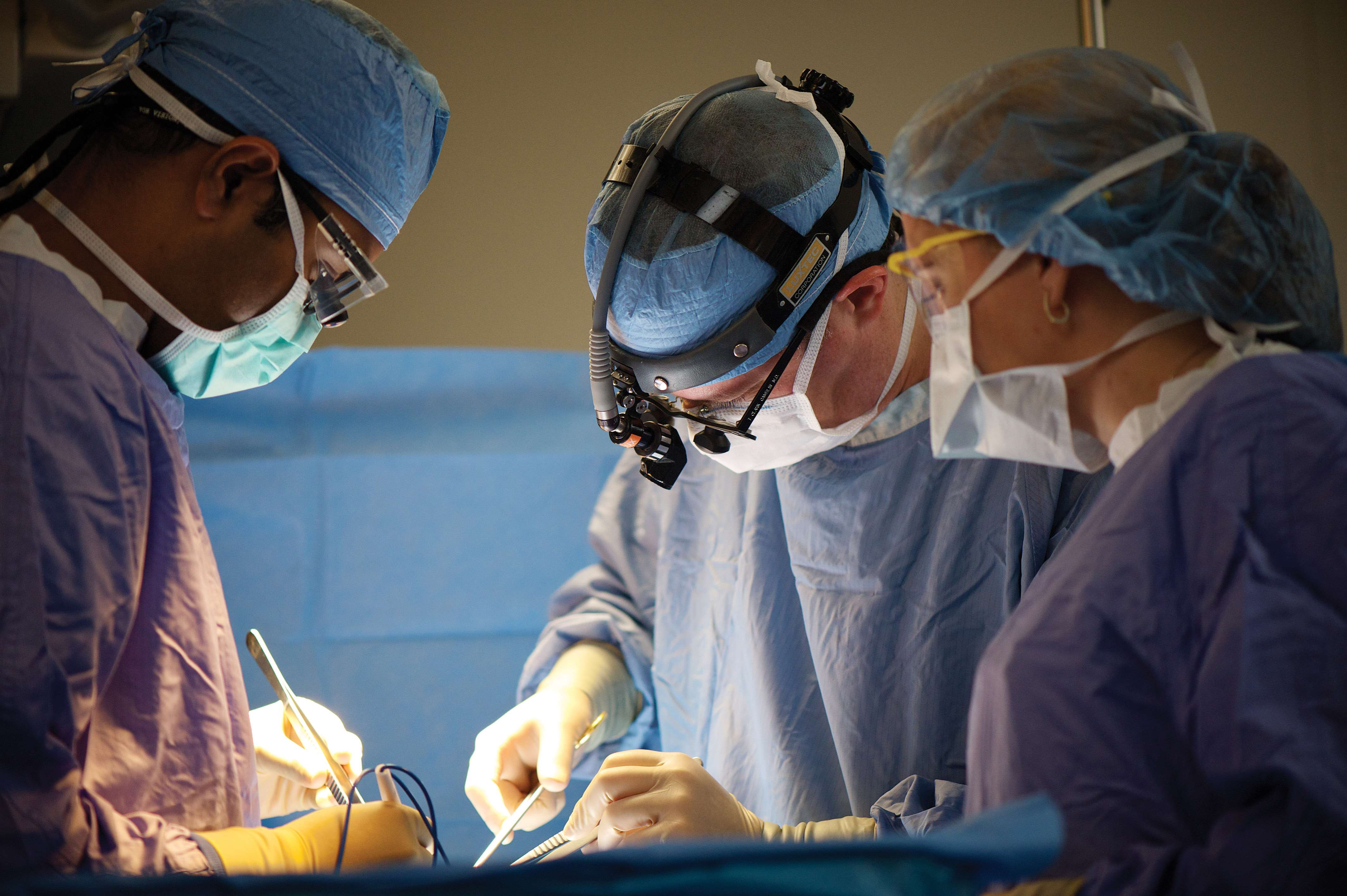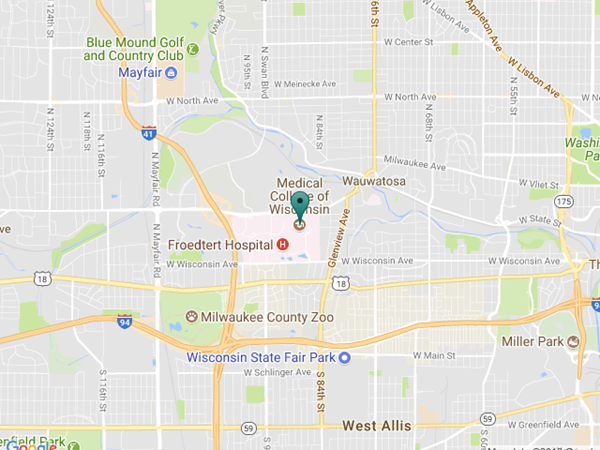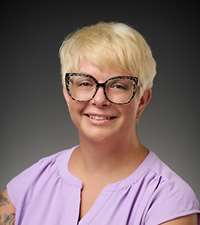Tina Wei-Fang Yen, MD, MS
Professor of Surgery
Program Director, Complex General Surgical Oncology Fellowship
Training: Harvard Medical School, MA (MD), University of Washington Affiliated Hospitals, WA (General Surgery Residency), The University of Texas M. D. Anderson Cancer Center, TX (Surgical Oncology Fellowship), Medical College of Wisconsin, WI (MS in Epidemiology)
Jed Calata, MD
Associate Professor of Surgery
Training: Sidney Kimmel Medical College at Thomas Jefferson University, Philadelphia, PA (MD), University of Illinois at Chicago, Metropolitan Group Hospitals (General Surgery Residency), John H. Stroger, Jr. Hospital of Cook County (Colon & Rectal Surgery Fellowship)
Kathleen K. Christians, MD
Professor of Surgery
Associate Program Director, Complex General Surgical Oncology Fellowship
Training: University of Iowa College of Medicine (MD), Medical College of Wisconsin Affiliated Hospitals, WI (General Surgery Residency), Medical College of Wisconsin Affiliated Hospitals, WI (Critical Care Fellowship), University of Hong Kong, China (Hepatobiliary and Pancreatic Surgery Fellowship)
Callisia N. Clarke, MD, MS
Associate Professor of Surgery, Chief of Surgical Oncology
Training: University of Cincinnati College of Medicine, OH (MD), University of Cincinnati, OH (General Surgery Residency), The University of Texas M. D. Anderson Cancer Center, TX (Complex General Surgical Oncology Fellowship)
Adrienne N. Cobb, MD, MS
Assistant Professor of Surgery
Training: Indiana University School of Medicine (MD), Loyola University Medical Center (General Surgery Residency), The University of Texas MD Anderson Cancer Center (Breast Surgical Oncology Fellowship), Loyola University Medical Center (MS in Clinical Research Methods and Epidemiology)
Chandler S. Cortina, MD, MS
Assistant Professor of Surgery
Training: Louisiana State University, LA (MD), Rush University Medical Center, IL (General Surgery Residency), Northwestern University, IL (Breast Surgical Oncology Fellowship)
Adam D. Currey, MD
Associate Professor of Radiation Oncology
Training: Medical College of Wisconsin, WI (MD), Medical College of Wisconsin, WI (Internship and Radiation Oncology Residency)
Douglas B. Evans, MD
Donald C. Ausman Family Foundation Professor of Surgery; Professor, Surgical Oncology; Chair, Department of Surgery
Training: Boston University School of Medicine (MD), Dartmouth-Hitchcock Medical Center, NH (Internship and General Surgery Residency), University of Texas, M D Anderson Cancer Center (Surgical Oncology Fellowship)
Alexandra C. Istl, MD, MPH
Assistant Professor of Surgery
Training: Western University, Ontario (MD), Western University, (General Surgery Residency), Johns Hopkins University School of Medicine (Complex General Surgical Oncology Fellowship), Johns Hopkins Bloomberg School of Public Health (MPH)
Julie Jorns, MD
Professor of Pathology
Training: Medical College of Wisconsin (MD), University of Michigan, Ann Arbor (Anatomic and Clinical Pathology Residency), University of Michigan, Ann Arbor (Breast Pathology Fellowship), University of Michigan, Ann Arbor (Surgical Pathology Fellowship)
Amanda L. Kong, MD, MS
Professor of Surgery
Training: Warren Alpert Medical School of Brown University (MD), Mount Sinai School of Medicine, New York (General Surgery Residency), M D Anderson Cancer Center (Breast Surgical Oncology Fellowship), Medical College of Wisconsin (Epidemiology MS)
Anai N. Kothari, MD, MS
Assistant Professor of Surgery
Associate Program Director, Complex General Surgical Oncology Fellowship
Training: Harvard-MIT Department of Health, Sciences, and Technology, Harvard Medical School-Boston (MD), Loyola University Medical Center-IL (General Surgery Residency), University of Texas MD Anderson Cancer Center-Houston, TX (Complex General Surgical Oncology Fellowship)
Kirk A. Ludwig, MD
Professor of Surgery
Training: University of Cincinnati Medical Center (MD), Medical College of Wisconsin (General Surgery Residency), Cleveland Clinic (Colon and Rectal Surgery Fellowship)
Ugwuji N. Maduekwe, MD, MMSc, MPH
Associate Professor of Surgery
Training: Harvard-MIT Department of Health, Sciences and Technology, Harvard Medical School (MD), Massachusetts General Hospital (General Surgery Residency), University of Pittsburgh Medical Center (Complex General Surgical Oncology Fellowship), Harvard Medical School (MMSc in Clinical Science), University of North Carolina Gillings School of Global Public Health (MPH)
Caitlin R. Patten, MD
Assistant Professor of Surgery
Training: Medical College of Wisconsin, WI (MD), Medical College of Wisconsin Affiliated Hospitals, WI (Internship and General Surgery Residency), Carolinas Medical Center (Breast Surgical Oncology Fellowship)
Carrie Peterson, MD, MS
Professor of Surgery
Training: Medical College of Wisconsin (MD), University of California, San Diego (General Surgery Residency Memorial Sloan-Kettering Cancer Center, New York (Colorectal Oncology Fellowship), Presbyterian Hospital/Weill Cornell Medical Center, New York (Colorectal Surgery Fellowship), Medical College of Wisconsin (MS in Clinical & Translational Research)
Timothy J. Ridolfi, MD, MS
Professor of Surgery
Training: Medical College of Wisconsin (MD), Medical College of Wisconsin (General Surgery Residency), Cleveland Clinic, Cleveland, Ohio, (Colorectal Surgery Fellowship), Medical College of Wisconsin (MS in Clinical & Translational Research)
Tracy S. Wang, MD, MPH
Professor of Surgery
Training: Albert Einstein College of Medicine (MD), Long Island Jewish Medical Center (General Surgery Residency), Mailman School of Public Health at Columbia University (MPH), Yale University School of Medicine (Endocrine Surgery Fellowship)









